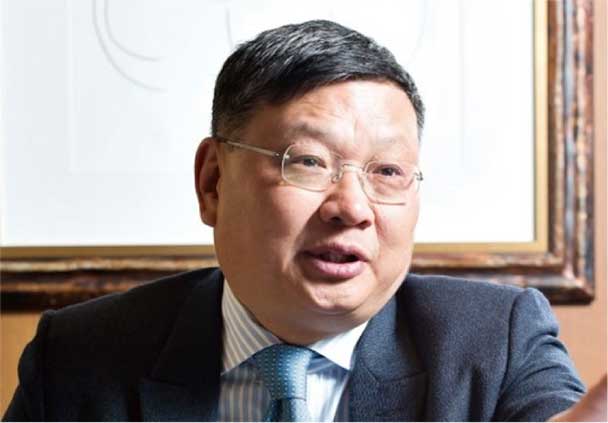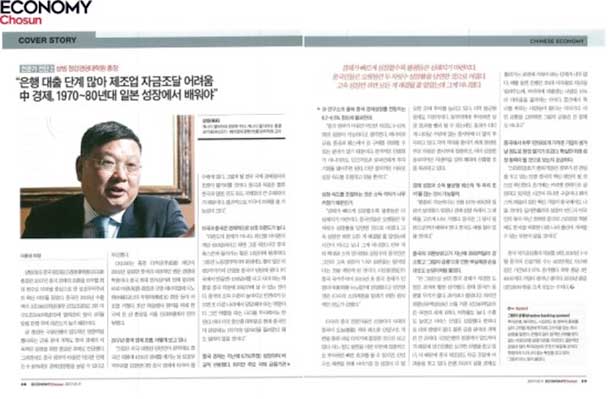Dean Xiang Bing of Cheung Kong Graduate School of Business (CKGSB) analyzed China’s economy today and discussed future prospects and trends during his recent interview with Economy Chosun, Korea’s influential economic weekly magazine.

Source: Economy Chosun vol. 184
In the interview, Dean Xiang also discussed the impact of the US presidential election, one of 2016’s key buzzwords and one of the most important events in the world’s future economic outlook. He expressed his views on how Mr. Donald Trump’s pledges will affect the Chinese economy in the future.
Dean Xiang said if Mr. Trump strengthens protectionism, imposing 45% tariffs on Chinese products as he’s declared, it will not only harm the Chinese economy, but it will also damage the US in the end. He emphasized that China’s economy serves an important role in the global economy. “China has been responsible for low-value-added industries that are labor-intensive and environmentally unfriendly, but the role is still essential in the international economy,” explained Dean Xiang.
Dean Xiang also presented a detailed analysis of China’s declined economic growth. He noted that the Chinese government is capable of raising China’s economic growth rate to 9-10% without any difficulties. However, China is adjusting its growth rate for political reasons. “As the economy grows faster, more inequality issues emerge,” said Dean Xiang. “The Chinese have long regarded double-digit growth rates as natural, considering most issues would be solved by high-speed growth. It turned out not to be true. Most Chinese people have realized that high-speed growth has ‘not had anything to do with them,’ and instead created polarization of income and widening gap between the rich and the poor.”
Still, Dean Xiang clarified that it is not impossible to promote economic growth and to mitigate income disparity at the same time. He emphasized that Japan had evenly distributed its benefits achieving tremendous economic growth in 1970s~80s, and that China must learn from the case of Japan.
In addition, Dean Xiang also shared his opinion on the enthusiasm of entrepreneurship in China. Currently, around 15,000 businesses are created every day in China. Dean Xiang expects start-ups to become a growth engine for China. “I am confident that startups will become China’s innovation engine; as a result, the government is also paying close attention to them,” he said. “Initially, businesses will continue to utilize copy-cat strategies in searching for growth opportunities. However, over time, innovative companies like Google, Facebook, and Tesla will also emerge in China. Just as the growth of Silicon Valley was not necessarily made by only the efforts of Americans, Korea and other countries can also contribute to China’s start-up revolution.”

Source: Economy Chosun 184
To read the full article in Economy Chosun on Dean Xiang Bing’s interview, please click here.